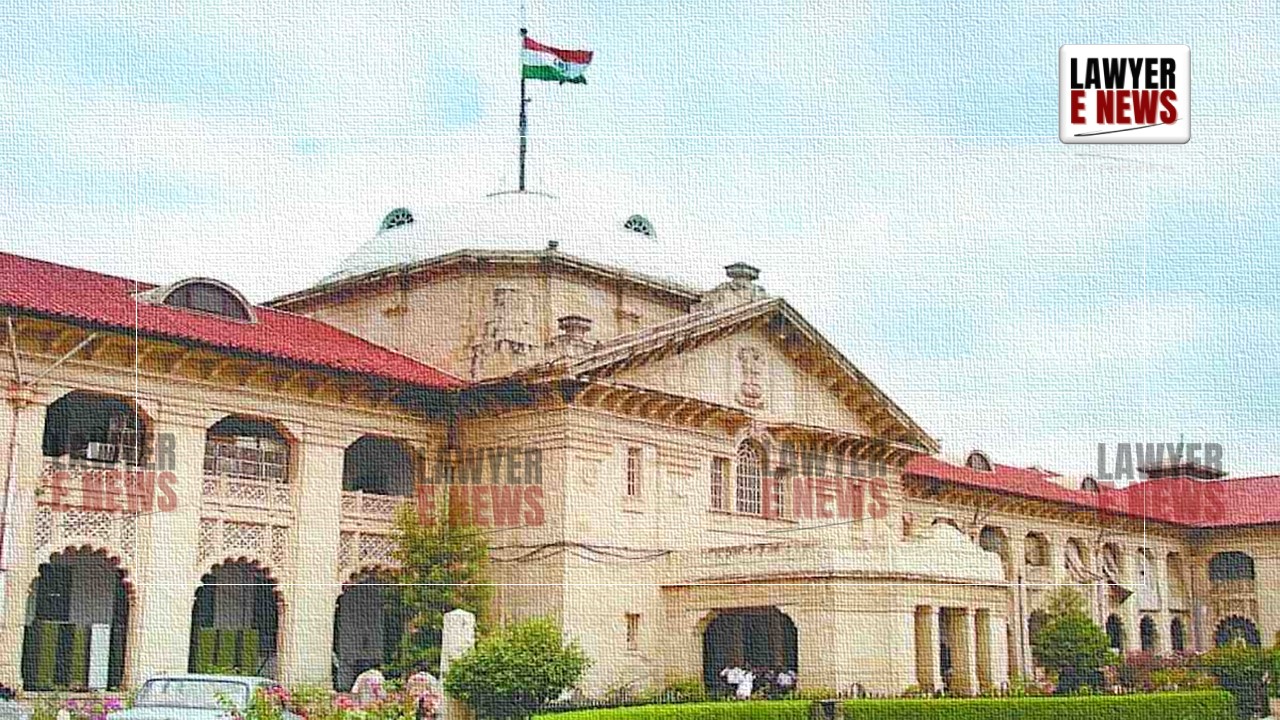-
by Admin
15 February 2026 2:16 AM



Joint Tenancy Rights Bind All Heirs; No Independent Claims to Resist Execution under Order 21 Rule 97 CPC - Allahabad High Court, presided by Justice Kshitij Shailendra, delivered a ruling in Second Appeal No. 596 of 2014, affirming that objections raised by Surendra Kumar under Order 21 Rule 97 of the Code of Civil Procedure, 1908 (CPC) to resist execution of an eviction decree against his brother were unfounded. The court upheld the rejection of the appellant’s claim of independent tenancy rights, holding that the eviction decree applied to all joint tenants. The court dismissed the appeal at the admission stage.
The case arose from an eviction decree obtained by Dr. Aditya Kumar Sharma (Respondent) against Prem Chandra, the appellant's brother, in Original Suit No. 323 of 1977. The appellant, Surendra Kumar, raised objections during the execution of the decree under Order 21 Rule 97 CPC, claiming that he had independent tenancy rights not subject to the decree against his brother. The Executing Court and the First Appellate Court both rejected his objections, holding that joint tenancy rights applied to both brothers, thus binding Surendra Kumar to the eviction decree.
I. Joint Tenancy Rights and Execution Proceedings
The primary legal issue was whether the appellant, as a joint tenant, could assert independent tenancy rights to resist the execution of a decree against his brother. The court, relying on established legal principles, ruled:
"When tenancy rights devolve upon heirs, they do so as joint tenants. The eviction decree obtained against one joint tenant binds all, and no independent claims can be raised under Order 21 Rule 97 CPC by another tenant."
The court emphasized that joint tenancy involves a single, indivisible tenancy, which passes to all heirs, making the eviction applicable to all joint tenants.
II. Order 21 Rule 97 CPC and Objections by Non-Judgment Debtors
Surendra Kumar sought to resist the eviction decree by invoking Order 21 Rule 97 CPC, which allows non-parties to a suit to raise objections in execution proceedings. However, the court clarified:
"While non-judgment debtors can raise objections under Order 21 Rule 97 CPC, such objections must be based on valid and independent rights. In this case, the appellant’s claim of independent tenancy is unfounded because the joint tenancy devolved upon both brothers, making the eviction decree enforceable against both."
III. Finality of Findings and Effect of Non-Filing of Cross Objections
The appellant also failed to file cross-objections challenging the earlier finding that he and his brother were joint tenants. The court highlighted that without cross-objections, the findings of the lower court on joint tenancy rights became final:
"The appellant did not file cross-objections in earlier proceedings to challenge the finding of joint tenancy. As a result, the finality of that finding binds the appellant, and he cannot now assert independent rights to resist execution."
IV. Established Legal Principles on Joint Tenancy
The court cited authoritative decisions, including Harish Tandon v. A.D.M. and H.C. Pandey v. G.C. Paul, to reinforce the settled principle that upon the death of a tenant, the tenancy devolves jointly upon the heirs, who cannot claim separate or independent tenancy rights:
"Upon the death of a tenant, the tenancy devolves jointly on all heirs, and an eviction decree against one joint tenant binds all. This principle applies regardless of whether the non-judgment debtor was a party to the original suit."
The Allahabad High Court dismissed the second appeal at the admission stage, holding that joint tenancy rights bound the appellant to the eviction decree passed against his brother. The court affirmed that objections under Order 21 Rule 97 CPC could not be sustained when based on unfounded claims of independent tenancy.
The court further directed that the case records be sent back to the District Judge, Hapur, for proper maintenance.
Date of Decision: October 16, 2024
Surendra Kumar v. Dr. Aditya Kumar Sharma
